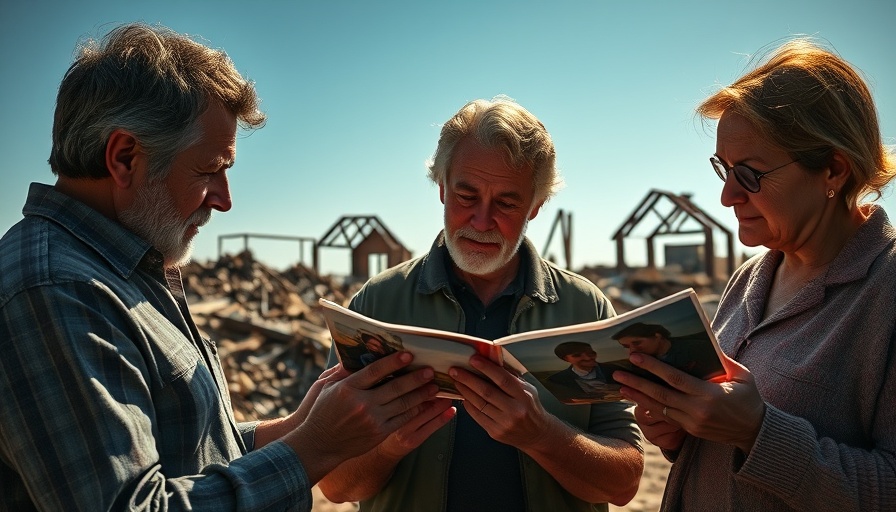
Understanding the Unique Vulnerability of Older Rural Americans
The aftermath of floods, hurricanes, and other natural disasters presents unique challenges for older adults, particularly those living in rural areas. With a greater proportion of older residents, rural communities often face distinct vulnerabilities that can exacerbate the impact of such disasters. For instance, the U.S. Census Bureau reports that nearly 20% of rural populations are aged 65 and over, compared to just 16% in urban settings.
Health Care Access: A Critical Issue
When disasters strike, access to essential health care services becomes a serious challenge for older adults in rural areas. Many rural hospitals have closed, forcing residents to travel further for medical care. Reports indicate that since 2005, nearly 200 rural hospitals have ceased in-patient services. This decline in health care accessibility is particularly alarming for older adults, many of whom have chronic health conditions.
How Disasters Impact Health: The Role of Chronic Conditions
According to research by the National Council on Aging, almost 95% of adults aged 60 and over suffer from at least one chronic condition, with many experiencing two or more. Such conditions—like heart disease and diabetes—can make recovery from disasters particularly perilous, as the disruption of services during storms can jeopardize their health.
Community Support: Strength in Togetherness
As we strive to optimize wellness and longevity, fostering community spirit becomes more critical. Families and neighbors can play a significant role in assisting older adults. This includes helping them prepare for weather events, checking in post-disaster, and facilitating access to healthcare and social services. Collaborative strategies that incorporate social ties enhance resilience against the long-term impact of disasters.
Actionable Insights for Healthspan Optimization
For health-conscious individuals aiming to improve longevity and overall wellness, understanding these challenges is paramount. Here are some actionable tips:
- Encourage older family members to engage in preventative care and stay informed about their health conditions.
- Implement healthy dietary strategies that emphasize nutrition and disease prevention, focusing on anti-aging protocols.
- Share resources about fitness and wellness strategies that are age-appropriate, promoting physical activity and community involvement.
Future Considerations: Building Resilient Communities
As we look ahead, it is essential to advocate for policies that protect rural healthcare access, ensuring older adults receive timely and effective care, especially during disasters. Enhanced emergency preparedness programs must focus on the unique needs of older Americans, identifying proactive measures that can safeguard their health and well-being in times of crisis.
Conclusion: Empowering Each Other in Times of Need
In conclusion, the interplay between aging populations and natural disasters underscores the necessity for community-centric solutions that extend beyond immediate assistance. We can enhance longevity and overall health by creating supportive environments and emphasizing the importance of strong social connections.
Stay informed and lend a helping hand to strengthen not just individual health but community resilience against future disasters.
 Add Row
Add Row  Add
Add 




 Add Row
Add Row  Add
Add 


Write A Comment